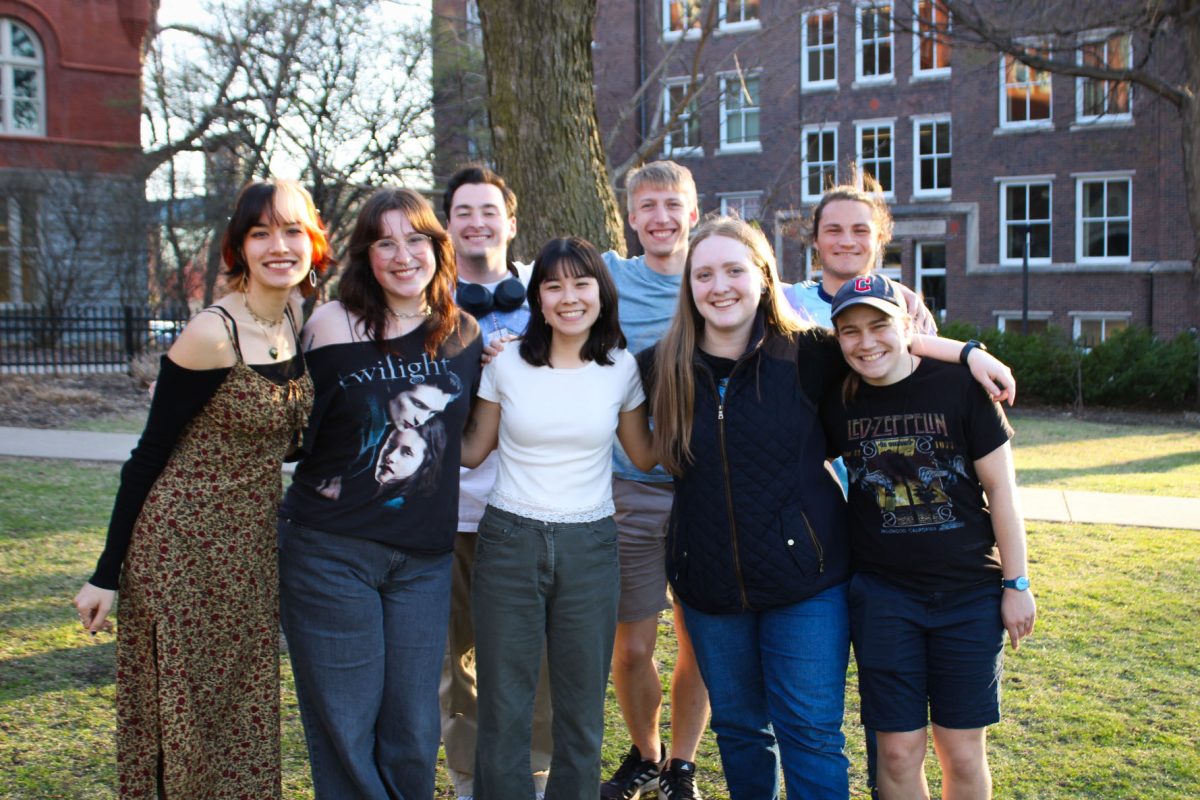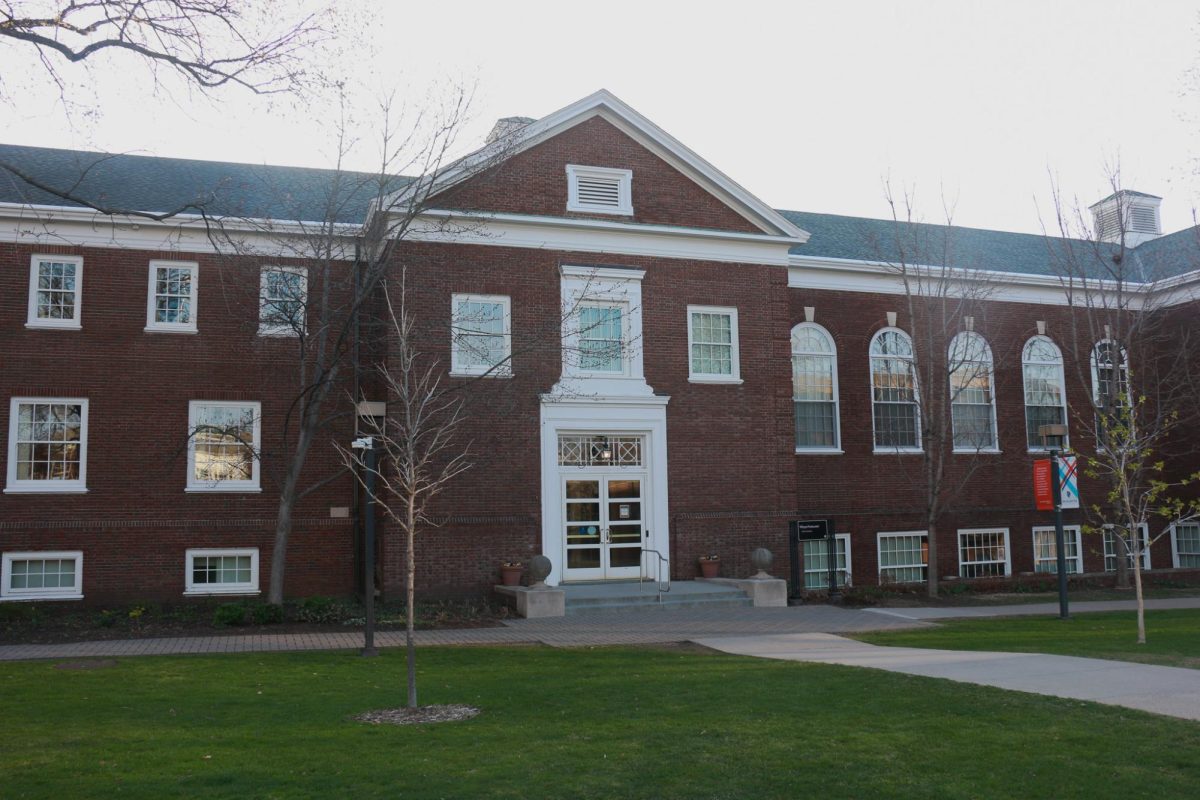
Courtesy of Macalester Archives.
This is the third installment of the Founder’s Day series where the Mac Weekly looks back at some Macalester Founders who have shaped the Macalester we know today. This week we will highlight Edward Duffield Neill, Macalester’s first founder.
Neill was born in 1823 in Philidelphia to a well-to-do family of Scotch-Irish Presbyterians; his father was a Presbyterian minister. He attended Amherst College and later recieved seminary instruction at Andover College. Surrounded by academic rigor, engaged students and professors and a focus on the liberal arts, Neill’s experiences at these schools shaped his vision of what Macalester would later become. In 1849 he was sent to the Minnesota Territory which had been formed that same year. When Neill arrived, he reported that St. Paul was, “just emerging from a collection of Indian whisky shops, and birch-roofed cabins of half-breed voyageurs,” but he felt that it improved as more white settlers came into the city.
Neill started First Presbyterian Church and House of Hope Church, both of which still exist today. He was instrumental in establishing the public school system in St. Paul and served as the first Superintendent of Public Instruction for the State of Minnesota and the first Chancellor of the University of Minnesota. During the Civil War, Neill was an army chaplain under the First Minnesota Volunteer Infantry Regiment, the first regiment to fight for the Union. After the war Neill worked in both the Lincoln and Johnson administrations and served as Consul to Dublin under President Grant.
Neill came back to the United States from Dublin in 1871 seeking to build a college “for young men upon a broad Christian basis.” He took over the management of the Baldwin School, a boys’ Grammar school in the Winslow House in Minneapolis. The school consisted of two branches, one for Baldwin school and the other for Jesus College – a men’s college loosely modeled after Neill’s alma mater, Amherst. It was to be Christian but “unsectarian” and follow much of the structure of elite, private East Coast colleges. After two years, it became apparent that it was not fiscally sustainable.
Thus, Neill turned to a friend, Charles Macalester, who was also the owner of Winslow House. Macalester initially wanted to use Winslow House as a hospital. However, he left an endowment to the college after his death and the school was renamed after Macalester in 1874, with Baldwin Grammar school remaining a part of the larger college. Neill served as the president of Macalester as well as a history and literature professor at different times. He wrote several history books about Minnesota and European colonization. In 1893 Macalester allowed the first women to attend the college, an action Neill opposed. Neill’s private collection of books was added to the Macalester archives after his death.
Similar to many of his contemporaries, Neill was incredibly racist towards Native American people and culture. He saw his impact on Minnesota to be, in part, to civilize the frontier, which can and should be read as erasure of Indigenous markers and the elevation of a white narrative. Neill had a fascination with archaeology and was one of the first excavators of Hopewell culture and Dakota burial mounds in Indian Mounds Park in St. Paul, an incredibly disrespectful disturbance of sacred ground. Of the 18 original mounds in the park only six remain with just one unexcavated. Many of the mounds were removed because they obstructed visibility of the Mississippi River Valley. It was only in 2014 that Indian Mounds Park was put on the National Register of Historic Places by the National Park Service.
It is painful to come to terms with the fact that Macalester was founded by such a person. At Macalester we identify as liberal, multicultural and accepting. It can be difficult to acknowledge that a founder of the college embodied none of those things as we conceive them now. Neill was a highly principled man, a diplomat and an abolitionist, but we must also hold that in conjunction with his blatant racism, disregard for Indigenous culture and elitism. However, to fully appreciate the history and legacy of the college, we need to know our roots, respecting what we now benefit from and condemning what is repugnant.







Xylem Galadhon • Aug 1, 2021 at 8:11 pm
Good article, balanced, fair, and accurate. Let’s remember though that *very* few people of that era were so open-minded to be fighting for the rights of Native Americans, so he does need to be judged in that context, as well.
James Scott • Sep 7, 2019 at 8:52 pm
But wanna remark that you have a very nice internet site, I enjoy the pattern it actually stands out.
Ameli Aircolon • Mar 22, 2019 at 3:59 pm
In my reporter days, it was said that every editor needs an editor. The article is interesting and informative but Barbara’s bio contains annoying errors.